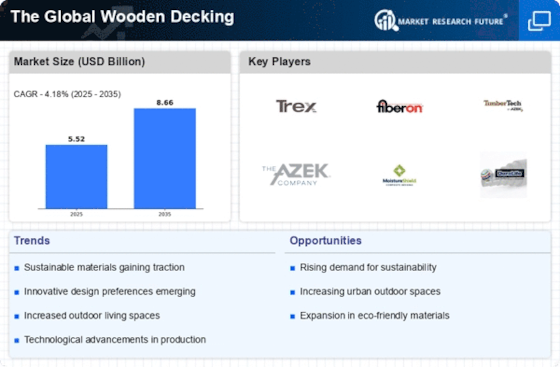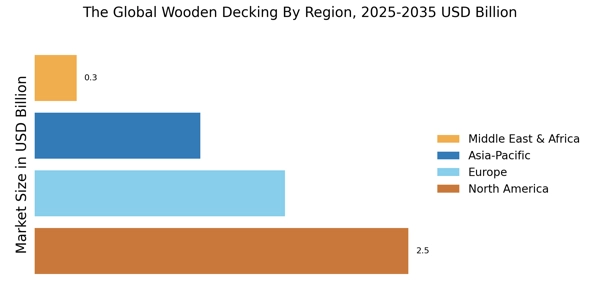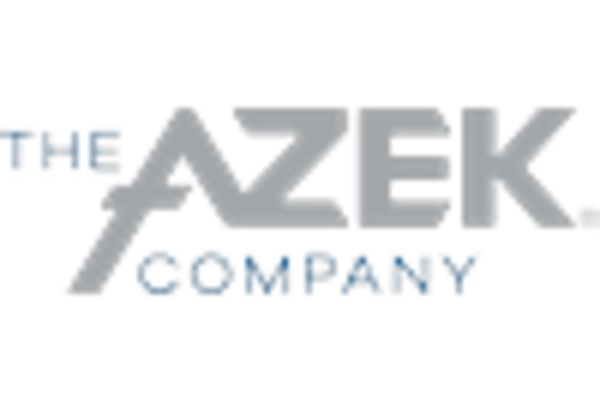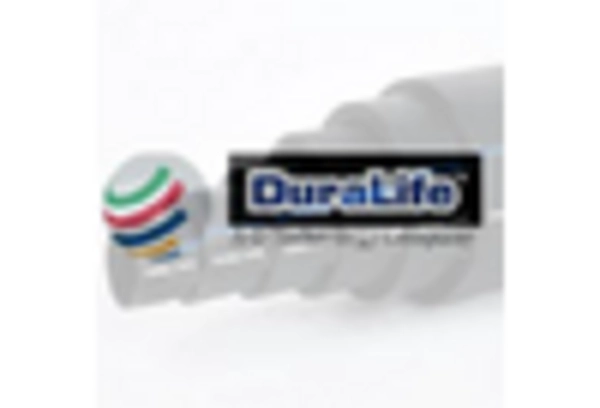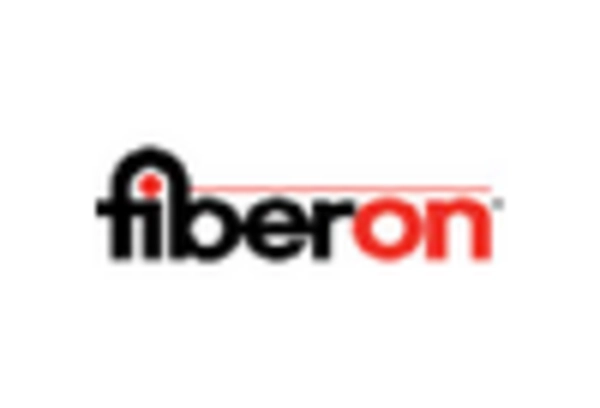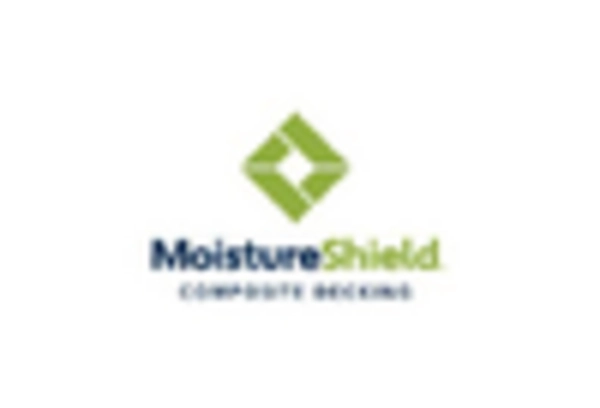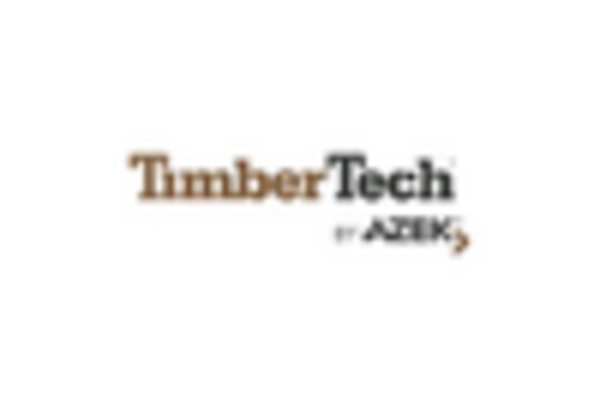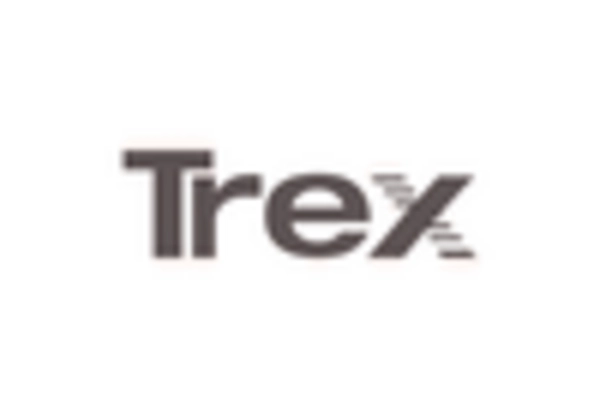Technological Innovations
Technological advancements are reshaping the wooden decking market, introducing innovative materials and manufacturing processes. The development of composite decking materials, which combine wood fibers with plastic, is gaining traction due to their durability and low maintenance requirements. This innovation appears to cater to the evolving preferences of consumers who seek longevity and ease of care in outdoor products. Furthermore, advancements in treatment technologies enhance the resistance of wooden decking to weathering and pests, potentially extending the lifespan of these products. As a result, the market is likely to see an increase in the adoption of these advanced materials, which could lead to a more diverse product offering. The integration of technology in the wooden decking market may also facilitate better design options, appealing to a broader range of consumers.
Sustainability Initiatives
The increasing emphasis on sustainability is a pivotal driver for the wooden decking market. Consumers are becoming more environmentally conscious, leading to a surge in demand for sustainably sourced materials. The wooden decking market is witnessing a shift towards certified wood products, such as those bearing the Forest Stewardship Council (FSC) certification. This trend is not only beneficial for the environment but also aligns with consumer preferences for eco-friendly options. As a result, manufacturers are investing in sustainable forestry practices, which could enhance their market position. The market for sustainable wooden decking is projected to grow, reflecting a broader trend towards green building practices. This shift may lead to a more competitive landscape, as companies that prioritize sustainability could gain a significant advantage in the wooden decking market.
Rising Outdoor Living Spaces
The trend towards creating outdoor living spaces is a significant driver for the wooden decking market. Homeowners are increasingly investing in their outdoor areas, seeking to enhance their living environments. This trend is reflected in the growing popularity of decks, patios, and outdoor kitchens, which are often constructed using wooden decking materials. According to recent data, the outdoor living market is expected to grow substantially, with wooden decking being a preferred choice due to its aesthetic appeal and natural feel. This shift in consumer behavior indicates a potential increase in demand for wooden decking products, as homeowners prioritize outdoor aesthetics and functionality. The wooden decking market is likely to benefit from this trend, as more consumers seek to create inviting outdoor spaces that reflect their personal style.
Urbanization and Housing Development
Urbanization is a critical factor influencing the wooden decking market. As urban areas expand, there is a growing demand for residential properties that incorporate outdoor spaces. New housing developments often feature decks and patios, which are increasingly constructed with wooden materials. This trend is particularly evident in suburban areas, where outdoor living is becoming a key selling point for new homes. The wooden decking market is poised to benefit from this trend, as builders and developers seek to meet consumer demands for outdoor amenities. Additionally, the rise in urban living may lead to an increase in multi-family housing projects that incorporate shared outdoor spaces, further driving the demand for wooden decking. This urbanization trend suggests a robust growth potential for the wooden decking market in the coming years.
Regulatory Support for Green Building
Regulatory frameworks promoting green building practices are emerging as a significant driver for the wooden decking market. Governments are increasingly implementing policies that encourage the use of sustainable materials in construction, including wooden decking. These regulations often provide incentives for builders and homeowners to choose eco-friendly options, which could lead to a rise in demand for certified wooden products. The wooden decking market is likely to see growth as these regulations gain traction, fostering a more sustainable construction environment. Furthermore, as awareness of environmental issues increases, consumers may gravitate towards products that comply with these regulations, further boosting the market. This regulatory support for green building practices may create a favorable landscape for the wooden decking market, encouraging innovation and sustainability.


